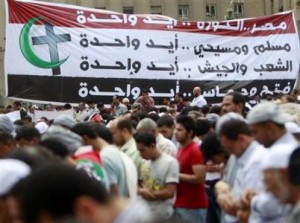
June 01 2011
More than 8,000 Muslim men and boys were slaughtered in the Srebrenica massacre and buried in mass graves.
Haunted for years by the memories of the atrocities which claimed the lives of their beloved ones, survivor of the Srebrenica massacre received the news of the arrest of Serb war crimes fugitive Ratko Mladic with relief as their prayers for long overdue justice to be served have finally been answered.
“I’ve been waiting for years for the criminals to be brought to justice,” Kada Hotic, who lost her husband and son in Srebrenica, told the BBC on Saturday, May 28.
“My life has been difficult all these years because those who should be living with me and those who should have continued to live after me are missing,” she said.
“And the worst thing is that I don’t know how they were killed nor how much they suffered. I don’t know what that monster had ordered, and what the executors did to them.”
That monster, as Hotic described him, is no one but Mladic who was arrested after a 16-year manhunt for charges of murdering thousands of Muslims during the 1995 Srebrenica massacre.
Srebrenica was a UN-protected Muslim enclave until July 11, 1995, when it was overrun by Serb forces led by Mladic who was then the commander of the Serb forces during the 1992-95 Bosnia civil war.
More than 8,000 Muslim men and boys were slaughtered and buried in mass graves.
“Mladic was giving orders in Potocari. I was some ten meters away from him when he said ‘my Serb brothers this is your unique opportunity use it’ and they used it as much as they could,” Hotic recalled the scene in her village when Mladic’s troops arrived.
“They took my son and husband, my two bothers and many other relatives and many other friends and neighbors of mine and all these years he was free enjoying life,” tearful Hotic said.
Mladic now faces charges of genocide, crimes against humanity and war crimes for his role in the Srebrenica massacre and the bloody siege of Sarajevo.
A Scottish forensic expert said he gathered evidence from massacre scenes that are enough to send Mladic “to hell”.
“I hope the evidence we pulled together will send him to jail and ultimately to hell,” Forensic technician Robert McNeil, who worked to identify the bodies following the slaughter, told The Daily Record newspaper.
“The weight of evidence against him should secure a conviction and I feel a certain pride I was part of creating a cast-iron case against him.
Stirring Agonies
But the news of Mladic’s arrest also brought along painful memories to those who still cannot forget about what happened.
“First reaction was, right, good news,” Muki who witnessed the massacre told the BBC.
“But then, as I turned on the TV and watched all the footage… the scenes from the war… it brought back all the bad memories, stuff that I normally have flashbacks and nightmares about that I and everybody [else] tries to block out.
“So it is not a happy day for me.”
Muki was a 17-year-old student at the beginning of the war, and stayed in Sarajevo throughout the siege, attending classes under sniper and mortar fire.
“I ate grass for four years. I still can’t eat meat or butter or anything which is hard to digest 15 years later. One of the memories I have is when I actually saw an egg. In Zenica. I thought – oh my God, they have eggs,” she remembers.
Saliha Osmanovic also cannot overcome her memories of the atrocities. She lost her entire family.
“It’s hard in my soul, every time I see it on television. The worst thing in life is when you have lost everybody,” she said.
What add to her grief was that the last appearance of her husband was recorded on video when her husband Ramo has been captured by the Serb military.
He was forced to call for their son Nermin who was hiding in the woods, to surrender himself to the Serbian military forces. Both were killed.
Nermin’s remains have been found in mass tomb in the village of Snagovo, municipality of Zvornik, while some of his father’s remains have been located in the village of Zeleni Jadar, municipality of Srebrenica.
Now she has only one wish in life. “Justice should be served.”
The Scottish forensic expert said he hopes his work would help a speedy conviction for the Serb butcher and bring relief to agonized families.
“I hope now that the arrest of Mladic will give closure to the victims,” McNeil told The Daily Record.
He even said that delivering justice would also give relief to hundreds like him who pieced together the remains of those executed and tossed into mass graves by Mladic’s troops.
“The bodies are mingled in a mass grave. It is an awful sight that assaults your eyes,” McNeil said.
“During the night, those terrible images still visit me,” he added.
“When I think of those graves, I have a compulsion to untangle the bodies and give them back to the families, to allow them the dignity of saying goodbye.”






